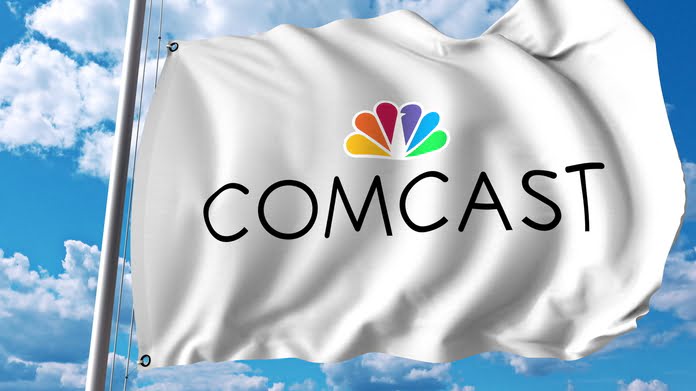Shares of Comcast (NASDAQ:CMCSA) and Charter Communications (NASDAQ:CHTR) fell in early trading Monday as a result of investment company Barclays Capital downgrading both equities and citing issues with their broadband businesses.
Due to fears that the fight for broadband consumers may only be beginning, Barclays’ analyst Kannan Venkateshwar downgraded Comcast from overweight to equal weight and Charter Communications from equal weight to underweight.
Given that the macro backdrop and competitive environment appear to be getting worse, Venkateshwar told his clients: full-year broadband sub-growth at Comcast and Charter is now expected at 300k and 200k respectively this year (vs our pre-Covid forecast of 1.2-1.4M each). The growing debate is likely to be about the likelihood of potentially negative broadband [subscriber] growth next year and beyond.
Stocks Also Down Premarket
In premarket trade, shares of Comcast (NASDAQ:CMCSA) and Charter Communications (NASDAQ:CHTR) decreased by about 1%.
Addressing the two stocks’ competition, Venkateshwar implied that the management at Charter Communications (NASDAQ:CHTR) almost seems in denial, and if T-Mobile (NASDAQ:TMUS) is able to grow its fixed wireless access business to the high-end of its guidance, at about 500,000 per quarter, it will surpass Altice (ATUS) by the end of 2023.
He added that the U.S. government’s investment in high-speed internet services and AT&T’s (NYSE:T) fiber development raise the possibility that existing digital subscriber line users would switch to fiber, which could result in an additional 20% overlap with cable’s current footprint.
Some others worry that FWA won’t be a permanent fix and that firms like T-Mobile (NASDAQ:TMUS), Verizon (NYSE:VZ), and AT&T (NYSE:T) might need to add spectrum. Even if it isn’t a long-term fix, the analyst continued, it might be a major headwind for cable over the next 2-3 years.
Can Lack of Internet Growth Be Offset?
The dearth of internet growth may be partially offset by the wireless divisions of Comcast (NASDAQ:CMCSA) and Charter (NASDAQ:CHTR), which added 317,000 and 344,000 subscribers, respectively, in their most recent quarters, while T-Mobile (NASDAQ:TMUS) added 397,000.
Although fixed wireless access (FWA) introduces a new revenue stream, cable companies do not currently have plans for a complete infrastructure-based offering, hence it is unlikely that fixed wireless will have the same valuation impact on cable that fixed wireless has had on telecom businesses.
Contrary to popular belief, Charter (CHTR) has spent nearly twice as much cash on buybacks as it has on capital expenditures over the previous five years, indicating that the company’s robust cash flows do not sustain its stock price.
Due to Charter’s acquisition of Time Warner Cable, now known as Spectrum, the company has more debt than Comcast, even though Comcast’s revenue is more than twice that of Charter’s and it has an EBITDA that is 60% bigger.
Given the possibility that Altice (NYSE:ATUS) would sell Suddenlink for $20 billion, it’s possible that M&A may play a larger role in the tale for cable and telecom businesses.
The management teams of these businesses may begin to consider vertical cable and wireless mergers, such as Comcast and T-Mobile or a partnership between Verizon and Charter.
According to Venkateshwar, the main obstacles are the cost of financing as well as the regulatory environment. All of this is why J.P. Morgan downgraded Comcast (NASDAQ:CMSA) last month, citing concerns about declining subscriber numbers and deteriorating financial performance.
Comcast has largely favorable analyst sentiment (NASDAQ:CMCSA). Wall Street analysts grade it a BUY.
Featured Image: Megapixl @Alexeynovikov

















